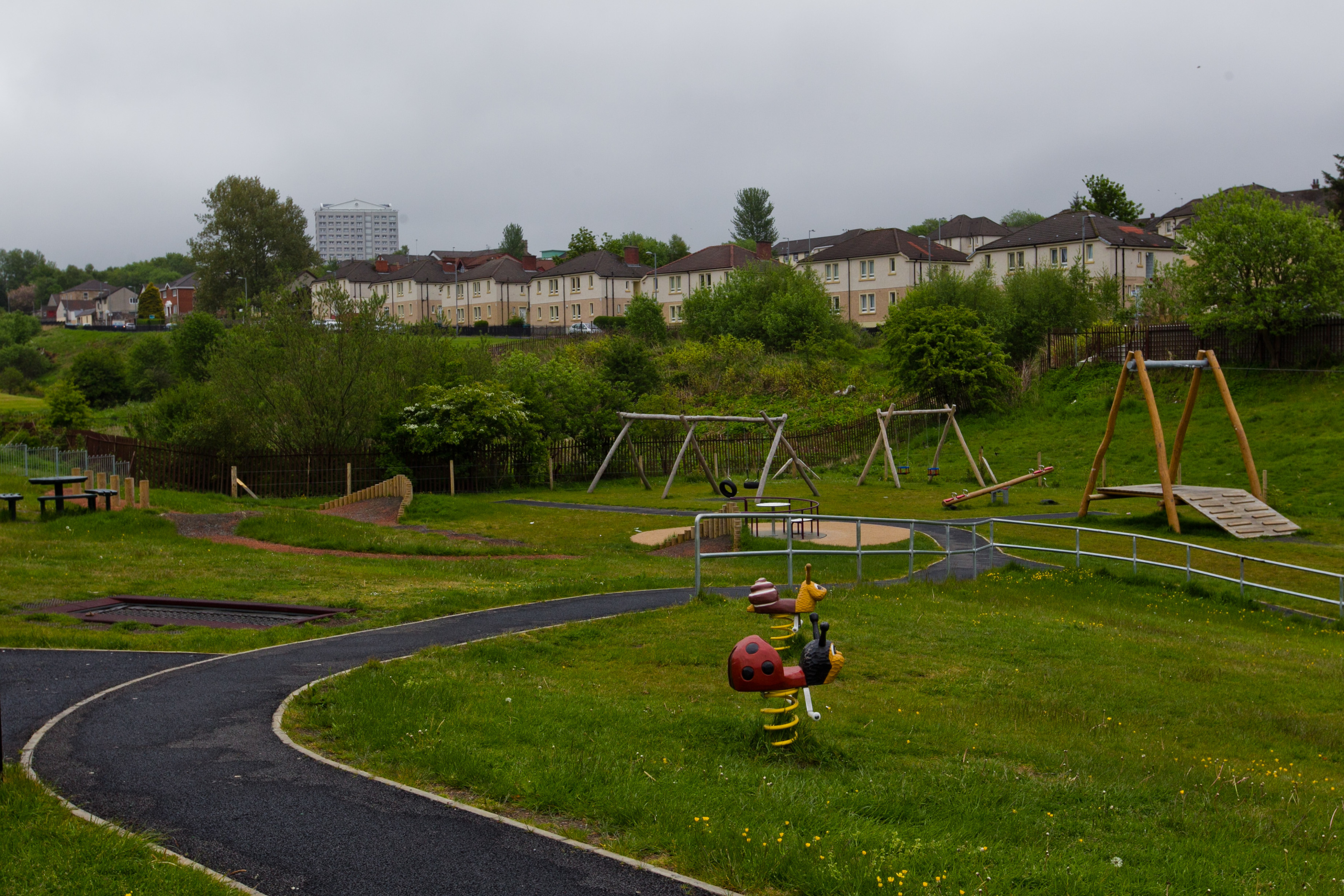
IT’S an unremarkable play park that hides a fantastic secret.
This small swathe of green in the middle of Airdrie was once home to a football pitch where the world’s first penalty was taken.
The historic goal was awarded to Lanarkshire outfit Royal Albert 125 years ago next month.
Now, as the anniversary of the world first approaches, the side is trying to trace relatives of James McLuggage – the scorer of the seminal goal which helped win the Airdrie Charity Cup on June 6, 1891.
Only four days earlier the International FA Board had met at the Alexandria Hotel in Glasgow to decide if penalties should be introduced.
Club secretary and treasurer Peter Higgins said it was the side’s “main claim to fame”.
He said: “It’s the first thing we tell anybody when they come to the club. We don’t get many honours but this is something nobody can ever take away from us.”
The team – which this season finished bottom of the Scottish Junior Football Association West of Scotland League Central District Second Division, as low as it gets in junior football – is trying to mark the ground-breaking event.
Mr Higgins said: “We are so keen to get hold of one of his relatives, or a wee picture would be great.”
The penalty came about 15 minutes into the game between Royal Albert and Airdrieonians at the now defunct Mavisbank Park in Airdrie.
The crowd of more than 2000 fans, as well as the players, were at first confused when the referee, Mr Robertson, blew his whistle.
It was the first time a new law had come into force to penalise “tripping, holding, or handling the ball within 12 yards of goal”.
It’s not recorded but there were almost certainly no markings for the penalty spot and the referee would have had to pace out both the 12 yards for the kick and the 18 yards from the goal where the outfield players had to stand.
The Coatbridge Express reported that “the referee pulled up Mitchell for throwing Lambie and granted a foul under the new law”.
The report added: “McLuggage took the 12 yards kick and shot a goal.”
Little is known of McLuggage, an Irishman who had moved to Glasgow to work as a cotton dyer.
But Royal Albert want to track down any information they can.
Mr Higgins is writing a book documenting the club’s history, which he hopes to sell to raise much-needed cash for the ailing outfit.
Royal Albert has no ground of its own and no longer plays in its home town of Larkhall, instead using Tileworks Park in Stonehouse.
“Hospitality takes place in the dressing room – we give people a cup of tea and a sandwich, or a
sausage roll,” Mr Higgins said.
Airdrieonians have never commemorated the event, possibly because they were the initial culprits, and also went on to lose what was at the time an important match.
John Henderson, Airdrieonians’ historian, said the introduction of the penalty was one of the most important events in the development of football.
He added: “Amazingly, it has survived virtually unchanged from its inception, in contrast to many other laws, such as offside, which has required what seems like an annual adjustment.
“The dramatic penalty shoot-out, dreaded by most players I’m sure, is an innovation which would have been unforeseeable in 1891, but, clearly, is now an integral part of 21st Century football.”
Although Royal Albert get their “fair share” of penalties, luck on the pitch deserted them this season when they lost 8-7 on spot kicks at the end of a Central Cup match against local rivals Larkhall Thistle.
Mr Higgins added: “We could have done with Mr McLuggage playing for us.”
As for the future, Mr Higgins is ever hopeful: “It is a great club to be involved with.
“You never know, I might win the lottery and I already have the name of the new stadium – Stadio Del Alberto.”
READ MORE
Heraldry laws mean top football clubs may lose their crests
Football blog Ten great footballers from the North-East

Enjoy the convenience of having The Sunday Post delivered as a digital ePaper straight to your smartphone, tablet or computer.
Subscribe for only £5.49 a month and enjoy all the benefits of the printed paper as a digital replica.
Subscribe